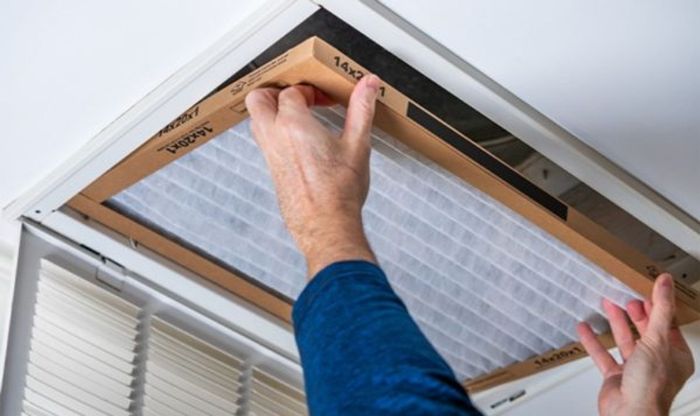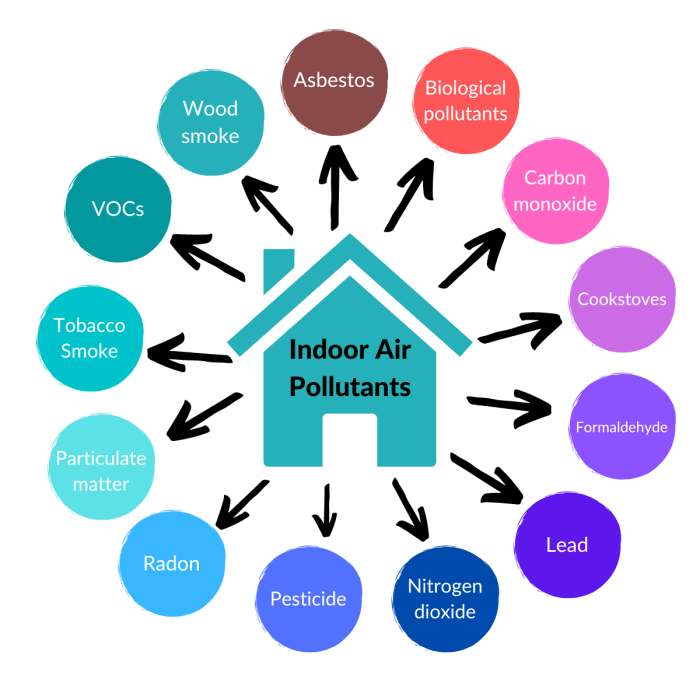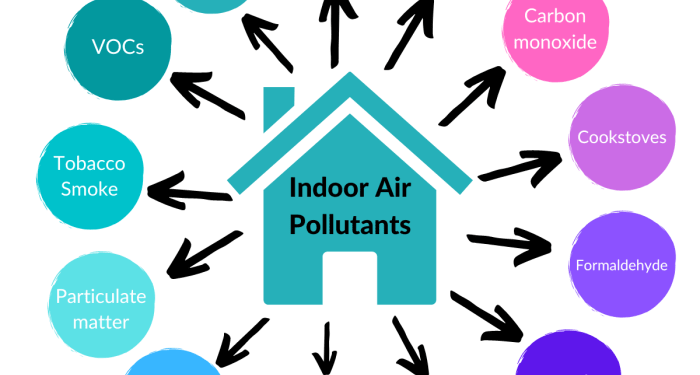Delve into the world of AC Filters and Indoor Air Quality Explained, where we unravel the secrets behind maintaining a healthy indoor environment. From the impact of dirty filters to the different types available, this guide covers it all.
Explore how filters play a crucial role in ensuring the air you breathe is clean and free of harmful contaminants.
Importance of AC Filters for Indoor Air Quality
AC filters play a crucial role in maintaining good indoor air quality by capturing particles and contaminants that can affect our health.
Types of AC Filters
- Standard Fiberglass Filters: These are the most basic filters and are typically disposable. They are effective at capturing larger particles but may not be as efficient at trapping smaller contaminants.
- HEPA Filters: High Efficiency Particulate Air filters are known for their ability to capture 99.97% of particles as small as 0.3 microns. They are excellent for improving air quality, especially for those with allergies or asthma.
- Pleated Filters: These filters have a larger surface area for trapping particles and can be more effective than standard fiberglass filters.
Filter Ratings and Impact on Air Quality
Filter ratings such as MERV (Minimum Efficiency Reporting Value) and MPR (Microparticle Performance Rating) indicate the efficiency of a filter in capturing particles. Higher ratings mean better filtration and improved air quality.
Common Contaminants Filtered by AC Systems

Indoor air contaminants can have a significant impact on our health and overall air quality. AC systems play a crucial role in filtering out these contaminants to create a healthier indoor environment.
Allergens
Allergens such as pollen, pet dander, and dust mites are commonly found in indoor air. AC filters are designed to capture these allergens, preventing them from circulating and causing allergic reactions in sensitive individuals.
Dust
Dust particles are a common indoor air pollutant that can trigger respiratory issues and allergies. AC filters trap dust particles, preventing them from accumulating in the air and on surfaces within the home.
Mold
Mold spores are another common indoor air contaminant that can lead to respiratory problems and allergic reactions. AC filters help to capture mold spores, inhibiting their growth and spread in the indoor environment.
Other Pollutants
AC filters also capture other pollutants such as bacteria, viruses, and chemicals present in the air. By removing these harmful particles, AC systems help improve the overall air quality and create a healthier living space.Overall, the role of AC filters in removing these common contaminants from the air is crucial for maintaining good indoor air quality and promoting better health for occupants.
Choosing the Right AC Filter
When it comes to selecting an AC filter, there are several factors to consider to ensure you choose the most suitable one for your indoor air quality needs. Factors such as filter material, MERV ratings, and specific air quality requirements play a crucial role in determining the right filter for your HVAC system.
Filter Materials Comparison
- Fiberglass Filters: These are the most basic and affordable option. They are effective at capturing larger particles but may not be as efficient in trapping smaller contaminants.
- Pleated Filters: These filters offer better filtration than fiberglass ones. They have a larger surface area for trapping particles and can capture smaller contaminants effectively.
- HEPA Filters: High-Efficiency Particulate Air (HEPA) filters are the most effective at removing airborne particles, including allergens, dust, and bacteria. They are ideal for individuals with allergies or respiratory conditions.
- Electrostatic Filters: These filters use an electrostatic charge to attract and trap particles. They are efficient at capturing smaller contaminants and are washable and reusable.
MERV Ratings and Significance
- MERV Ratings: Minimum Efficiency Reporting Value (MERV) is a standard rating system that measures the effectiveness of air filters. The higher the MERV rating, the better the filter's ability to capture smaller particles.
- Significance in Filter Selection: Consider the MERV rating when choosing a filter based on your air quality needs. Higher MERV ratings are suitable for capturing finer particles but may restrict airflow if not compatible with your HVAC system.
Tips for Choosing the Right Filter
- Identify Your Air Quality Needs: Determine if you need to target specific contaminants like allergens, dust, or pet dander.
- Consider HVAC System Compatibility: Ensure the selected filter is compatible with your HVAC system to prevent airflow restrictions.
- Consult with a Professional: If unsure, seek advice from HVAC professionals to recommend the most suitable filter for your indoor air quality requirements.
Maintaining AC Filters for Optimal Performance

Regular maintenance of AC filters is crucial for ensuring optimal performance of your air conditioning system. Neglecting filter maintenance can lead to reduced efficiency of the AC unit and poor indoor air quality. Here's why you should prioritize filter maintenance:
Frequency of Filter Changes/Cleaning
- It is recommended to change disposable filters every 1-3 months, depending on usage and filter type.
- Reusable filters should be cleaned every 1-2 months to prevent dust and debris buildup.
DIY Cleaning Methods for Reusable Filters
- Remove the filter from the AC unit.
- Vacuum the filter to remove dust and debris.
- Wash the filter with mild soap and water, allowing it to dry completely before reinstalling.
Impact of Neglected Filters
Neglected filters can significantly impact the efficiency of your AC system and indoor air quality:
- Reduced airflow due to clogged filters can strain the AC unit, leading to increased energy consumption and higher utility bills.
- Dirty filters may fail to capture contaminants effectively, allowing allergens, dust, and pollutants to circulate in your home.
- Poor indoor air quality can worsen allergies, asthma, and other respiratory issues among occupants.
DIY Tips for Improving Indoor Air Quality
Indoor air quality can be significantly improved by implementing various do-it-yourself strategies beyond just changing AC filters. Proper ventilation, reducing indoor air pollutants, and using air purifiers can all contribute to creating a healthier indoor environment.
Enhancing Air Quality through Proper Ventilation
Proper ventilation is crucial for maintaining good indoor air quality. Opening windows and doors to allow fresh air to circulate can help remove stagnant air and reduce the concentration of indoor pollutants. Utilizing exhaust fans in kitchens and bathrooms can also aid in eliminating moisture and odors, further enhancing air quality.
Reducing Indoor Air Pollutants
To minimize dust, pet dander, and other allergens in your home, consider regular cleaning routines. Vacuuming carpets, rugs, and upholstery frequently can help reduce the accumulation of dust and pet hair. Additionally, washing bedding and curtains regularly can further prevent allergens from circulating in the air.
Benefits of Using Air Purifiers
Air purifiers are effective tools for improving indoor air quality, especially when used in conjunction with AC filters. These devices can help capture and remove airborne particles such as dust, pollen, and pet dander, ensuring cleaner and fresher air in your home.
Conclusive Thoughts
In conclusion, understanding the significance of AC filters in maintaining indoor air quality is vital for your well-being. Take the necessary steps to choose the right filter and maintain it regularly to enjoy a fresh and healthy living space.
FAQ Resource
How often should AC filters be changed?
It is recommended to change AC filters every 1 to 3 months, depending on usage and filter type.
What are MERV ratings and why are they important?
MERV ratings indicate the efficiency of an air filter. The higher the rating, the better it is at capturing small particles. It is crucial for selecting a filter that meets your air quality needs.
Can air purifiers replace AC filters?
Air purifiers and AC filters serve different purposes. While filters trap particles in the air, purifiers actively clean the air. Using both in conjunction can significantly improve indoor air quality.














